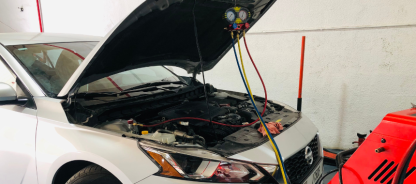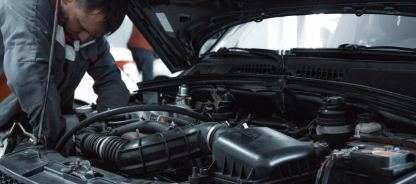A well-maintained car not only runs efficiently but also lasts longer, saving you money on repairs and replacements. Regular maintenance can prevent major breakdowns and keep your vehicle in top shape. Here are ten essential car maintenance tips to extend your vehicle’s lifespan.
1. Regular Oil Changes
Engine oil lubricates the engine and prevents excessive wear and tear. Follow your manufacturer’s recommended oil change schedule and use high-quality oil to keep your engine running smoothly.
2. Maintain Proper Tire Pressure
Incorrect tire pressure can lead to poor fuel efficiency, uneven wear, and even blowouts. Check tire pressure regularly using a pressure gauge and ensure it matches the recommended PSI in your owner’s manual.
3. Check and Replace Brake Pads
Brakes are crucial for safety. If you hear squeaking or grinding sounds, it may be time to replace your brake pads. Regular brake inspections can help avoid costly repairs and ensure safe driving.
4. Keep Your Battery in Good Condition
A dead battery can leave you stranded. Regularly inspect battery terminals for corrosion, clean them if necessary, and check the voltage. If your battery is over three years old, consider replacing it.
5. Monitor Engine Coolant Levels
Coolant prevents the engine from overheating. Check coolant levels periodically and ensure there are no leaks. Flushing the cooling system as per the manufacturer’s guidelines also helps maintain optimal performance.
6. Replace Air Filters
A clogged air filter can reduce fuel efficiency and engine performance. Replace your air filter every 12,000 to 15,000 miles, or more frequently if you drive in dusty conditions.
7. Get Regular Wheel Alignments
Misaligned wheels can cause uneven tire wear and poor handling. If you notice your car pulling to one side or uneven tire wear, get a wheel alignment to improve stability and extend tire life.
8. Pay Attention to Warning Lights
Dashboard warning lights indicate potential issues with your vehicle. Don’t ignore them—address any warning signals promptly by consulting a mechanic to prevent further damage.
9. Seasonal Maintenance Checks
Different seasons impact vehicle performance. In winter, ensure antifreeze levels are adequate, and in summer, check air conditioning performance. Seasonal checks help your car adapt to changing weather conditions.
10. Use Quality Fuel and Lubricants
Using high-quality fuel and engine lubricants can enhance performance and reduce engine wear. Avoid low-grade fuels that may contain contaminants that can damage internal components.





